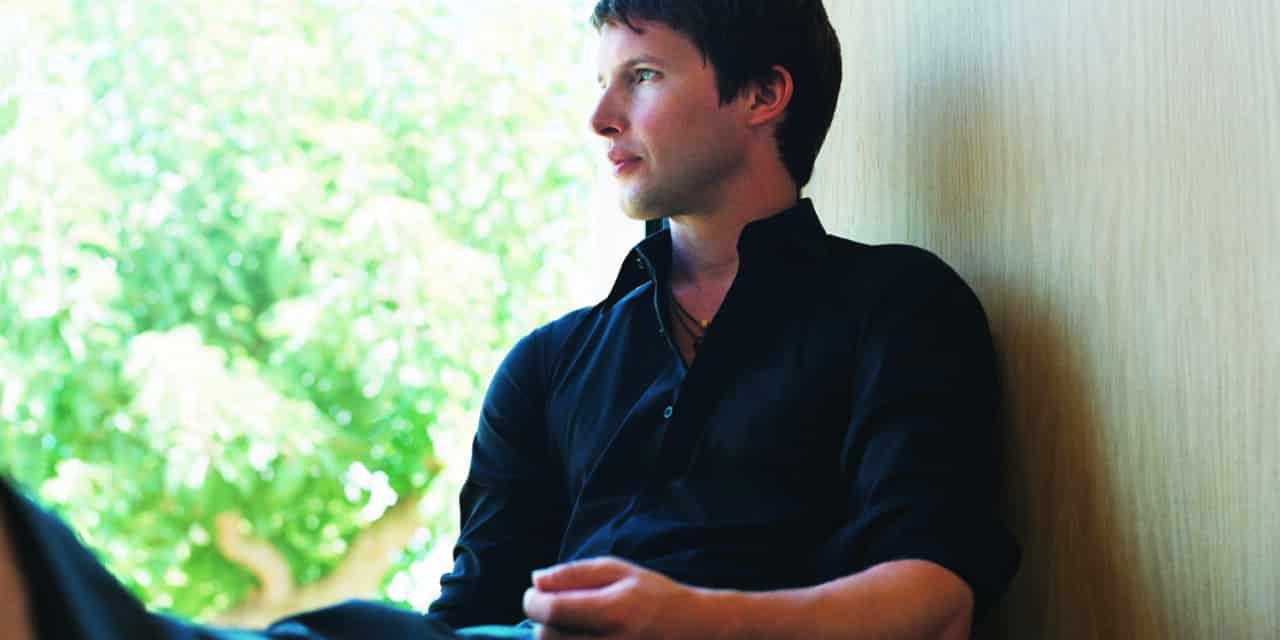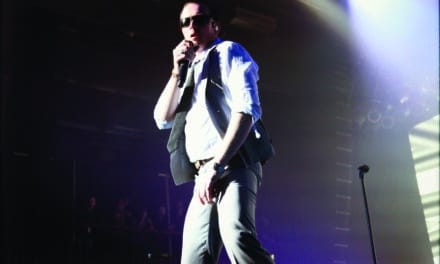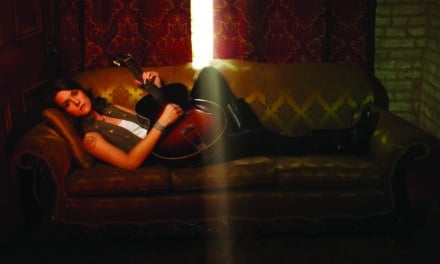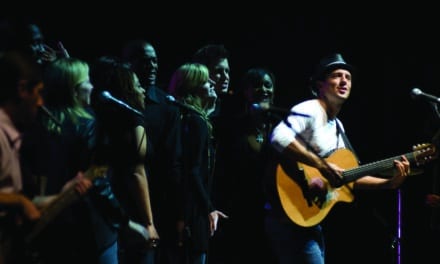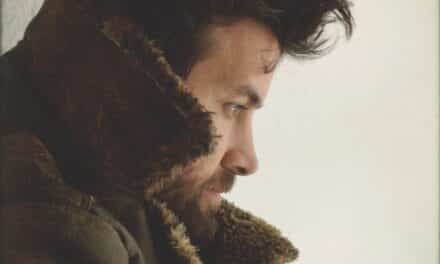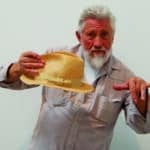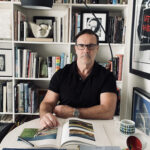james Blunt
Written By: Ben Bamsey
Photography by: andrew Zaeh
“There are children standing here,
Arms outstretched into the sky,
But no one asks the question why,
He has been here.
Old men kneel to accept their fate.
Wives and daughters cut and raped.
A generation drenched in hate.
Says, he has been here.And I see no bravery,
No bravery in your eyes anymore.
Only sadness.”
Blunt was born into the military on a base where his father served, and his grandfathers before that dating back to the 10th century. The patriarchs preached army, but Mom gave him the gift of music. Beatles, Beach Boys, The Doors, and the great singer/songwriters of the late 1970’s soothed his artistic soul. Blunt learned the piano and violin by age seven. At 14, he was writing songs and playing guitar in a covers band, and later added the organ, marimba and Mellotron to his repertoire. Blunt’s calling was song, but his destiny was service. He earned a pilot’s license at age 16, went to army-sponsored college and quickly earned his stripes in the armed forces. After Kosovo, Blunt stood guard at Buckingham Palace and was on duty during the Queen Mother’s funeral. Then, in 2002, after six years of service to his country, Blunt traded in marching orders for a soft falsetto. With raw talent, a worldly perspective and an abundance of honest songs, Blunt hit the road to share his soul. Fans fell in love with this sensitive balladeer, rocketing him into the stratosphere of the music elite. Mentioned in the same breath as David Gray, Damien Rice and even a young Elton John, Blunt sold a staggering 18 million albums during the 2000’s and earned five Grammy nominations. After two world tours and setting three Guinness World Records along the way, Blunt is now set to release his third studio album, Some Kind of Trouble in January 2011.
Ironically, it was Veteran’s Day when I sat down to talk to James Blunt in New York. With a noisy parade of patriotism passing by, I began by thanking him for his service, and then asking him if he had a lasting image from his days in uniform. He recounted the inhumanity, violence and death he witnessed, along with the courage and compassion of many, but his most vivid reflection came seven years after the war. “I went back to do a documentary on Kosovo, and it is still totally scarred, emotionally and physically,” he said. “Here it is all that time after, and yet the scars of war will last for generations. What it taught me is that violence only creates more violence, and that diplomacy is incredibly important. If we just try and understand other people’s perspectives and try and reach a balance of tolerance – that’s the fastest path towards achieving peace.”
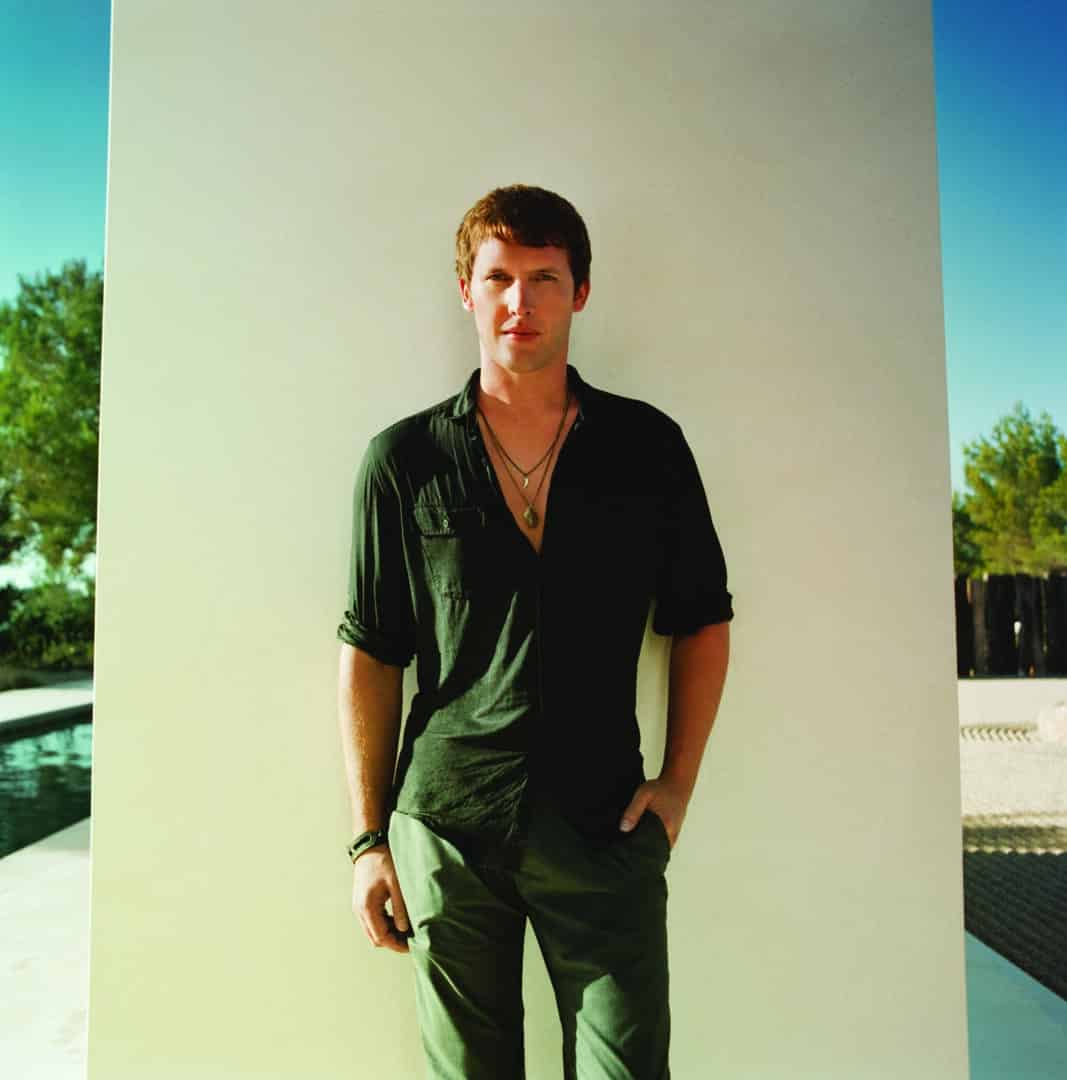
“I have seen peace. I have seen pain,
Resting on the shoulders of your name.
Do you see the truth through all their lies?
Do you see the world through troubled eyes?
And if you want to talk about it anymore,
Lie here on the floor and cry on my shoulder,
I’m a friend.I have seen birth. I have seen death.
Lived to see a lover’s final breath.
Do you see my guilt? Should I feel a fright?
Is the fire of hesitation burning bright?
And if you want to talk about it once again,
On you I depend. I’ll cry on your shoulder.
You’re a friend.”
With every word and musical arrangement, Blunt achieves sincerity. It’s a quality that attracts loyal fans and repels people who prefer to live in the clouds. The singer is meticulous in his presentation – a perfectionist who spent more than a year locked in his studio fine-tuning Some Kind of Trouble. It’s an important album for Blunt, who views it as a new chapter in his career. He calls Back to Bedlam and All the Lost Souls bookends – the action of innocence followed by the reaction of losing it. In the snap of a finger James Blunt went from “unrecognizable man on the street” to the singer who knocked an established Coldplay from the top spot on the charts. All of a sudden his every move was dissected, every song critiqued. Fame and expectation slapped him around when it came time to write a follow-up. “All the Lost Souls was recorded with the audience in mind. It was quite introverted, and much darker than the first,” he reflects. Despite debuting at number one in ten countries and selling five million copies, Blunt feels his voice got lost in a big pair of britches, as though making profound statements had somehow become more important than tying his shoes.
Blunt’s junior album reinvents the cherry. Gone are his long locks, and back is his boyish charm. naïve optimism. He does not play rock star in this act; instead he’s in the middle of the crowd partying like everyone else. “I’m very settled now. I’ve been hanging out with my friends, living an ordinary life. I’ve had normal experiences. That’s why I feel this third album has new and fresh emotions, topics and lyrics that any human alive and conscious will be able to relate to. My naïve optimism has returned.” As a result, Some Kind of Trouble is upbeat, leaning towards naughty, yet still grounded in honest prose. The first single, “Stay the Night,” is a sexy, acoustic-driven dance ditty slathered in California love. It’s a simple song about perfect weather, a brilliant sunset and a blossoming romance. “It has this feeling that it was written around a campfire,” Blunt says about the track penned alongside Ryan Tedder of OneRepublic and producer Steve Robson. “I’m hoping Arnold Schwarzenegger is going to call me up and commission me to use it as a holiday commercial.”
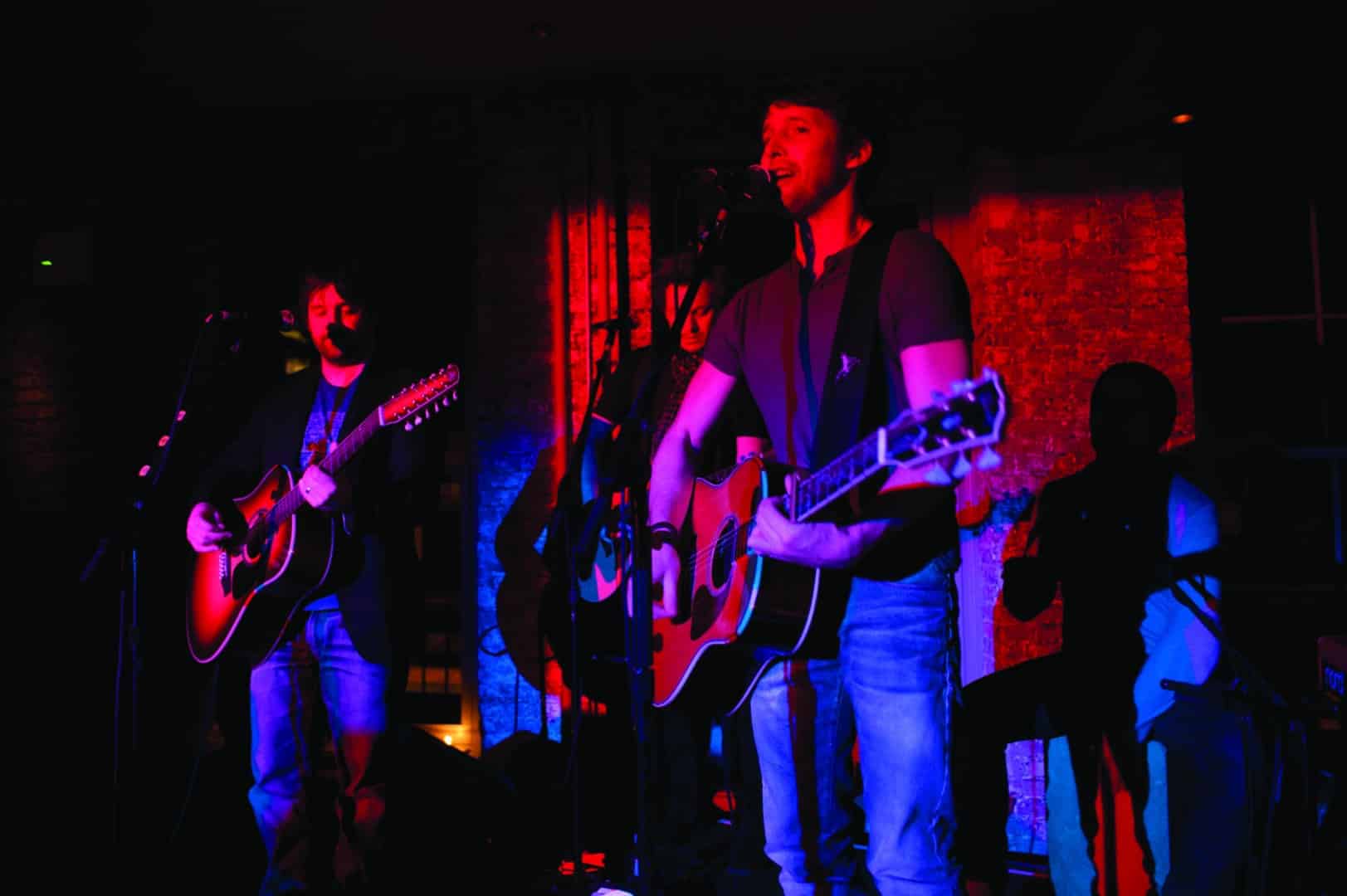
The bittersweet “These Are the Words” aches of a ripe vulnerability turned sour, while the trenchant “Superstar” gives Hollywood a golden shower. “He says times like these I don’t want to be a superstar/Cause reality TV killed them all in America/Oh the sun always shines in a magazine/Tonight can we be free to be who we really are? Anchoring this album is the poignant, unsentimental ballad “No Tears” – a song that seems to sum up a life. “I am proud of it melodically and how it’s structured,” Blunt says, “but lyrically I love its sense of understanding and resolution. It recognizes that I have made mistakes, I have regrets, I’m the one that’s made this bed, so I lie in it – and that is me.”
“Yeah I’ve bathed in sunshine
But cherished the fading light
And I heard my heartbeat falter
On a winters night
I loved a woman
But she didn’t hear my prayers
So lord, oh lord, I’m yoursAnd no tears
For the life that you lead
You had angels in your head
Did you hear them singing in the air?
All the things that do seem
All the things that could have been
Well I’ve been everything I wanna beSo no tears, no tears”
After song 11 on the new album there’s five seconds of dead air. It’s meant for listeners to soak everything in before Blunt hurls sauna steam on them. Track thirteen is titled “Turn Me On,” and on it sultry bass plays hard-to-get with the pulsating percussion. Blunt oozes lyrics like, “Underwater with someone’s daughter/Gonna make you a dirty woman,” while his lead guitar finds satisfaction through an explosive staccato riff. Atlantic did not want this scorcher on the record. The label agreed after Blunt proposed separating the song from the rest. “Kinda’ makes it stand out even more,” he smirks.
Blunt enjoyed a similar triumph when Custard Records told him the word “fucking” in “You’re Beautiful” had to go. “I told them, ‘No way,’” Blunt says. “I’d already written the song. If I changed it, then that would have been a lie. They looked at other versions, ‘I am especially high,’ ‘I am particularly high,’ ‘I am really, rather high.’ But, come on! I mean when you’re high, and you’re really high – what are you? You’re fucking high! I enjoy words, and I use words for a reason, not for an effect. Sometimes a swear word is entirely relevant.” For the radio, Blunt did change the lyrics to “flying high,” because he believes that airplay singles are simply commercials to get listeners to check out the deeper tracks on an album. He’s always wanted his music to speak for itself, and articulating a song’s meaning makes him uncomfortable. “If I would’ve wanted more words, I would have written another verse,” he says.
A military turned music hero, Blunt takes good care of the soil that holds his roots – giving time and money to environmental, humanitarian and veterans’ health causes. Now that Blunt has sprung from his creative cave, he can’t wait to share the new material with his fans, kicking off a world tour in early 2011… “I have a great band that helped record this album, and we’re going to have the time of our lives playing these songs for everybody.”

